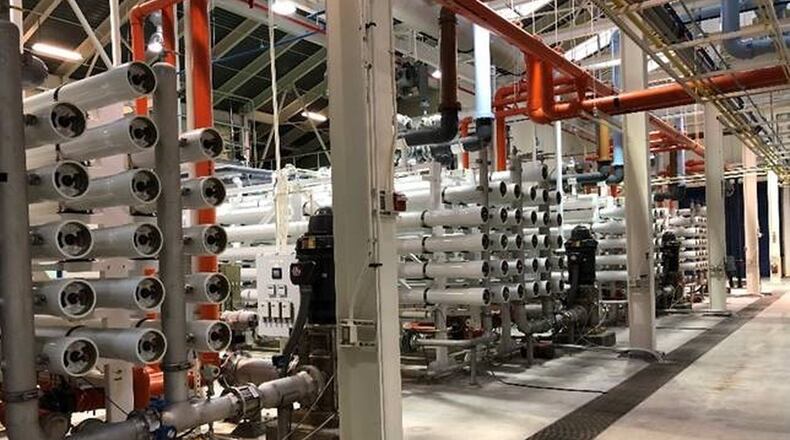Commissioner selected to represent Greene County on state board
The total cost of the project is estimated to be about $35 million. The project is a win-win, Jason Tincu, Greene County director of the Sanitary Engineering Department said, because the department is able to make the upgrades without raising the cost for residents’ water.
“Over the last 25 to 30 years, the service area has been absolutely bombarded with replacements of water softeners, water heaters, and commercial establishments don’t like all the lime residual that comes through,” said Tincu. “The history of Greene County water is that it’s very hard. The aquifer has a lot of lime, very hard.”
Greene County’s ‘Mount Brushmore’ debris pile begins to disappear
To fund the project, the department plans to go through the state to apply for a 20-year loan with an interest rate of about 2%.
“We have a lot of work to do; it’s not going to be an easy chore,” Tincu said. “Beavercreek is my hometown, and this has been a complaint since I’ve been in the industry. It’s a great opportunity for me to help fix it.”
Choosing between two main softening systems, the Sanitary Engineering Department decided to use a membrane filtration method of softening instead of a process that relies on lime. Membrane filtration uses a tightly wound wrap that has very small pores that filter out contaminants like metal and other impurities.
“Miamisburg just upgraded to the system (and) Huber Heights — It’s kind of the newest trend in water treatment upgrades,” Tincu said.
FIRST LOOK: Inside the completed, new home of Greene County Parks and Trails
Once completed and the department is ready to flip the switch, the plant will be able to deliver 12 million gallons per day, versus the current 9 million gallon per day capacity. Full-scale upgrades to existing infrastructure will be planned, as well as a new membrane building will be built at the plant.
Tincu hopes that once the project is completed, Greene County homes will be able to phase out in-home softeners all together, saving homeowners upwards of $150 per year.
“I’ve been in the business 22 years, in and around the Dayton-area. Every time I talk to somebody, they say ‘Will you do something about Beavercreek’s water?’ And now the opportunity is in front of me.”
The department plans to educate customers on what to expect and what to do about one year before the new system is ready to operate.
About the Author
